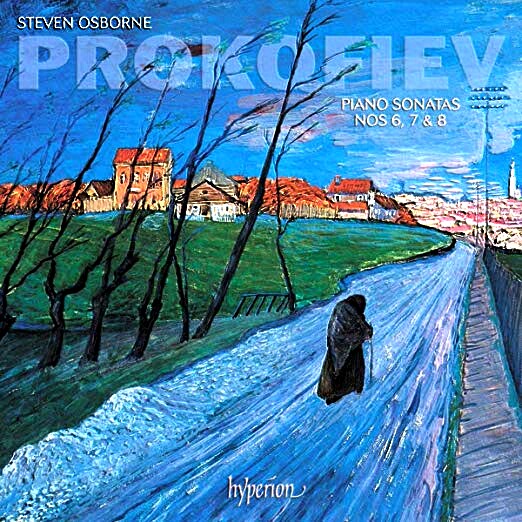

Piano Sonata No. 6 in A major, Op. 82 (1939) Piano Sonata No. 7 in B-flat major, Op. 83 (1939-42) Piano Sonata No. 8 in B-flat major, Op. 84 (1939-44)
After the Piano Sonatas by Alexander Scriabin, these sonatas by Sergei Prokofiev (1891-1953) could be considered some of the most challenging and onerous pieces within the sonata repertoire. Not so much for their technical demands -- although these have the potential to bring any seasoned pianists to their knees -- but for their musical ambiguities. Prokofiev embedded key motivic and thematic material deep within the musical structure of these piano works which puts the onus on the pianist to not only identify them but enhance them as well. And if you take into account Prokofiev's proclivity for multiple and abrupt key changes, dynamic changes, odd rhythmic patterns, melodic lines alternating between the treble and bass clef, oscillating modes and passages to be played dangerously fast, that is not an easy task. Add to all this the fact that despite being advanced, modern piano works, there's something about their character that demands they be played in a primitive manner.
Scottish pianist Steven Osborne cuts through all of these obstacles like a torpedo propelling through murky waters and hits the mark every time. I've followed along with the printed scores in hand (even that is difficult when the music moves along at breakneck speeds) while listening to this recording, and I'm amazed at the high level of attention and care Osborne brings to the myriad of small details like rests, accents, pauses, slight dynamic fluctuations, etc ... all things that make the music leap off the page. Notes on a staff are nothing until a musician can recreate their original intent. Osborne captures the volatility and turbulence of the outer movements as well as the unusual beauty and serenity of the slow inner movements. And clocking in at a time of 3:18 his interpretation of the famous Precipitato movement from the No. 7 is one of the fastest and most demented versions I've heard. In a review of his recent Rachmaninov recording I had noted that "even in the thorniest and complex passages, Osborne clearly articulates and accents the key notes, bringing them out as if they were landmarks on a road map," and this certainly applies here as well.
These turbulent, chaotic, war-induced piano works are a challenge not only for the pianist but for the listener as well. But if you're up for a challenge, this recording by Steven Osborne is also a stimulating musical experience.
I myself am a pianist and I know that extensive playing is hard on the upper back and shoulders. The effort it took for Steven Osborne to master, polish and set down these pieces in a recording studio must have been demanding because there is even a note of gratitude, in the booklet notes, to his physiotherapist for helping him get through this.
Winner of the 2021 BBC Music Magazine Instrumental Award!
Jean-Yves Duperron - January 2020